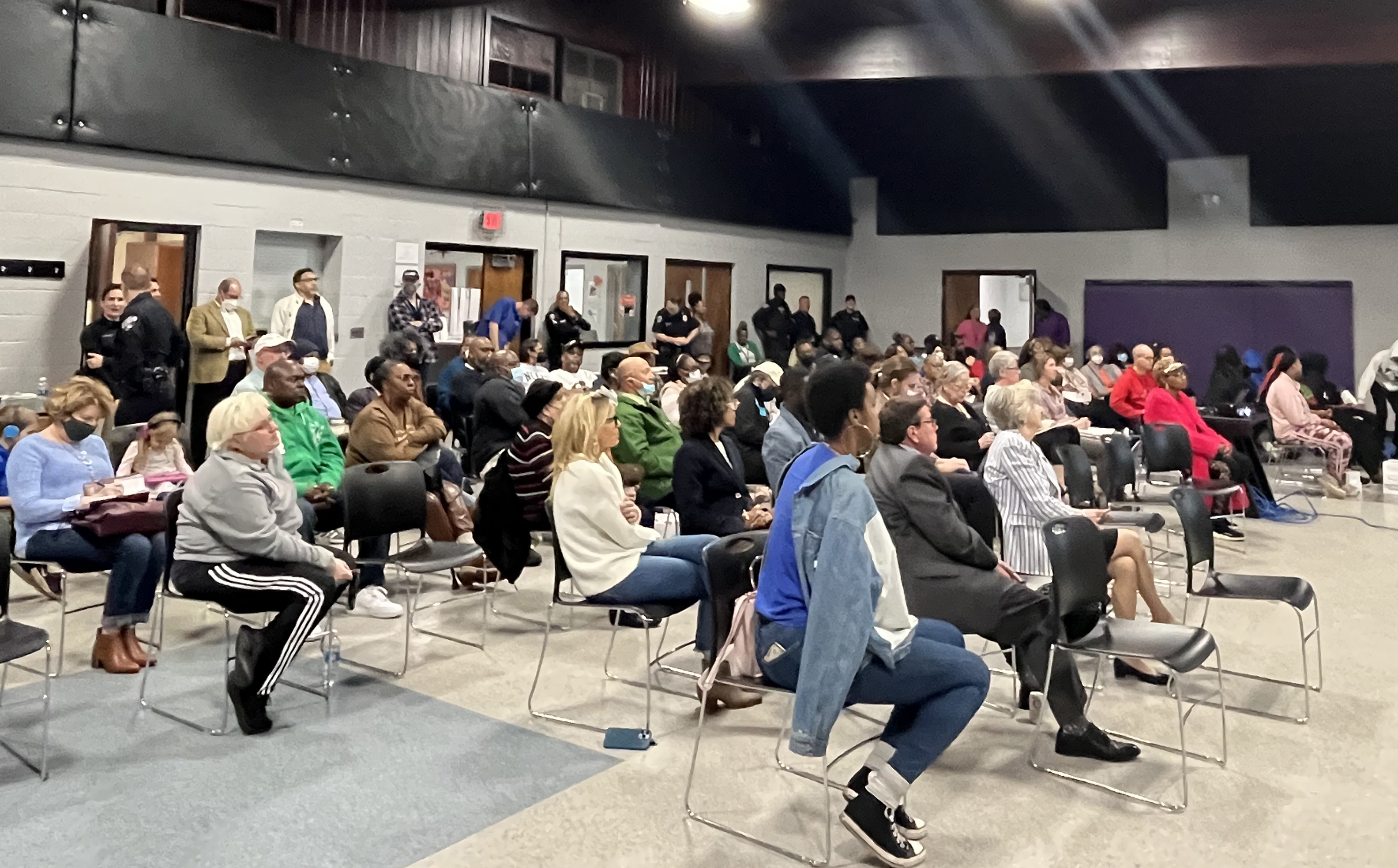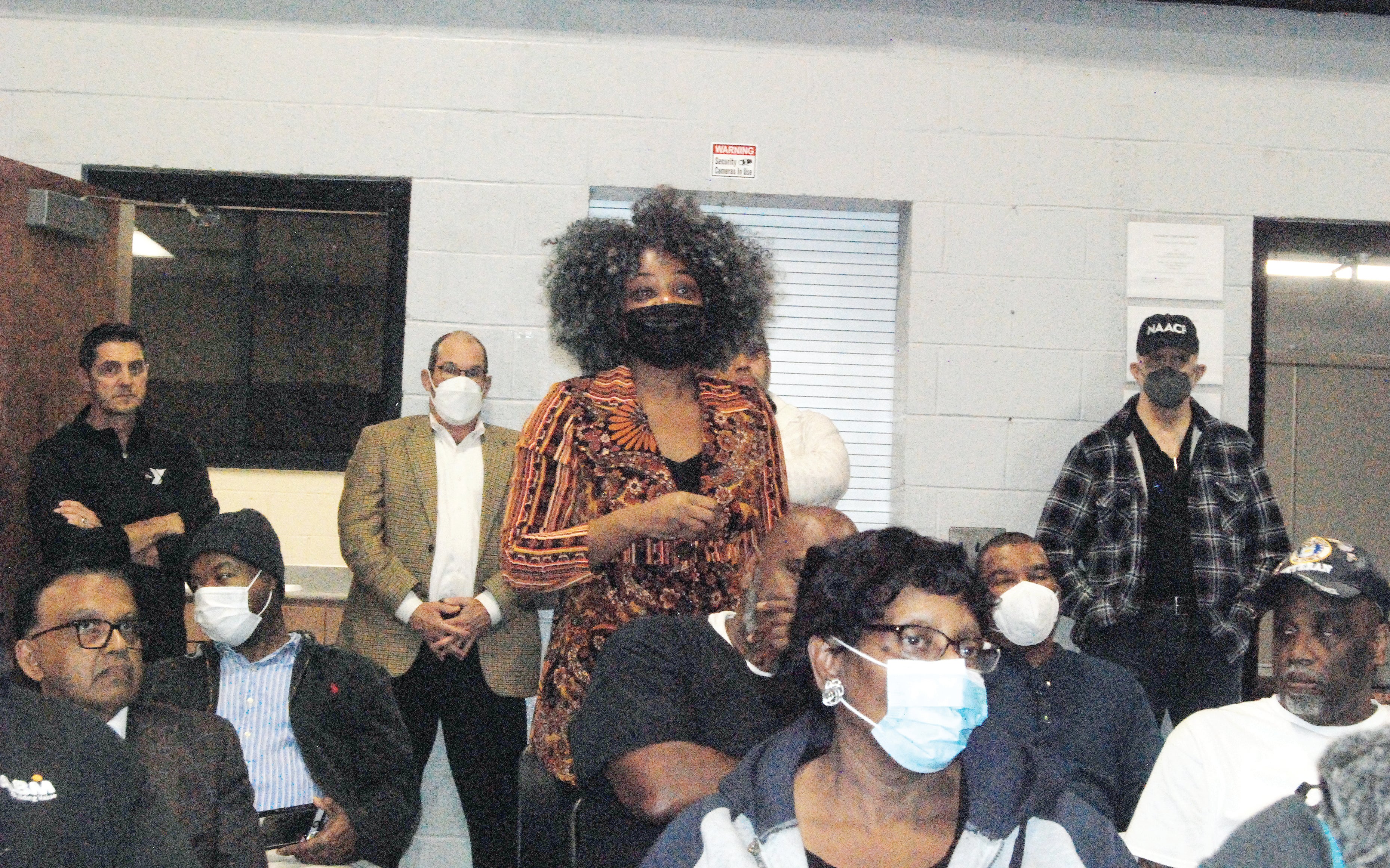It takes a village: West End town hall shines light on next steps for community grant revitalization
Published 12:07 am Tuesday, February 21, 2023
SALISBURY — West End neighborhood residents will have additional chances to submit input for their visions on how a nearly $1 million grant project should be allocated with two upcoming virtual town hall events.
Those virtual conversations will be held on Wednesday at 6:30 p.m. and Thursday at 10 a.m. They will follow up in-person discussions that were held at the Miller Recreation Center on Feb. 16.
To join in on the virtual conversations and make your voice heard, go to www.salisburync.gov/WestEndPM.
The Byrne Criminal Justice Innovation grant is intended to bolster community-led initiatives, in this case, to help revitalize the 1.21-square-mile neighborhood and address its crime concerns through an effort called the WEST END (West End Salisbury Transformed Empowered Neighborhood Development) Project.
During the in-person town hall, the project’s coordinator, Chanel Nestor, fielded suggestions from the audience about how it would like to see the money spent. Ideas ranged from after-school programming to increased community patrols.
Nestor initiated the conversation by sourcing the crowd to highlight community assets.
“Before we talk about what we need, we need to talk about what we have,” Nestor said. “A lot of the times when we have these conversations, we don’t talk about the good we already have to build upon.”
Attendees brought up several institutions and programs, including the West End Food Bank, area churches and Livingstone College.
While Salisbury has been selected for the grant, the city won’t see a dime of that money until an action plan is submitted.
“The most important piece of that action plan is what we hear today,” Nestor said of the town hall meeting.
Given the importance of community feedback in her project, Nestor indicated that seeing so many people packed into the Miller Recreation Center was a good start.
“I was so happy with the turnout,” Nestor said. “I felt like people were vocal and that they felt comfortable speaking as well. I am happy that I could hear the voices of everyone who wanted to speak at least once.”
Since coming on board late last year, Nestor has been surveying and cataloging various data points from throughout the West End community on a street-by-street and house-by-house basis. Using those data points, Nestor formulated a picture of the community’s needs, but the town hall provided some confirmation for her after hearing similar sentiments from residents.
“For me, it was confirming for some of the things we have seen so far that the community members who came and showed up also feel the same about the things we have gathered from the data,” Nestor said. “It was good to hear that things are in line. Often, the individuals collecting the data see completely different things than what actually exists.”
One emerging theme involved police presence within the community, such as on Livingstone College’s campus, as junior Alyssa Walker-Gurnell pointed out.
“When it comes to visibility and our relationship with the police between the campus of Livingstone College, the community and the police as a whole, I feel like it would be more helpful if we had a more casual relationship,” Walker-Gurnell said. “That way, they know who we are when they see us. They know where we go and how we act and behave normally, so when they see us agitated, they know what agitated versus passionate looks like.”
Interim Salisbury Police Chief Brian Stallings attended the meeting and responded to criticism of his department.
“They are difficult subjects, but that is what we need to hear,” Stallings said. “They need to hear what we want to do, and we need to hear what they want to do.”
Stallings acknowledged that the West End residents are not asking more than any other resident might expect.
“We need to do what they are asking,” Stallings said. “We have to be there. That is something I need to work on as the leader of the department. It is encouraging to hear information back, so I know what we need to do.”
While many proposals are not new, Stallings still believes they hold much merit.
“There are some similar ideas that have been out there for a long time, but there was a lot of good information passed along,” Stallings said.
Salisbury Customer Service Center manager and West End resident Caren Lightfoot, added, “I think the most important reminder from tonight was that it takes a village. This neighborhood is not a neighborhood of individuals. It’s a village of people who care about it and are looking forward to seeing what types of progress we make with the ideas that came from the meeting tonight.”
What’s next?
Town hall attendees were encouraged to take a brief online survey. One of those questions asked, do you feel safe in your neighborhood? Others focused on what kind of services could enhance the quality of life for West End residents.
As Nestor continues to document and catalog those data points, an action plan will come more into the picture.
Some of the preliminary ideas focused on improving recreational spaces for community groups, developing a community violence intervention team and restoring vacant lots and structures when possible.
Parameters for project spending prohibit the purchase of new land or major construction, but it can be used in beautification projects such as rehabilitating signage and facades.
Nestor indicated at the meeting that the formal action plan would be submitted by April.





